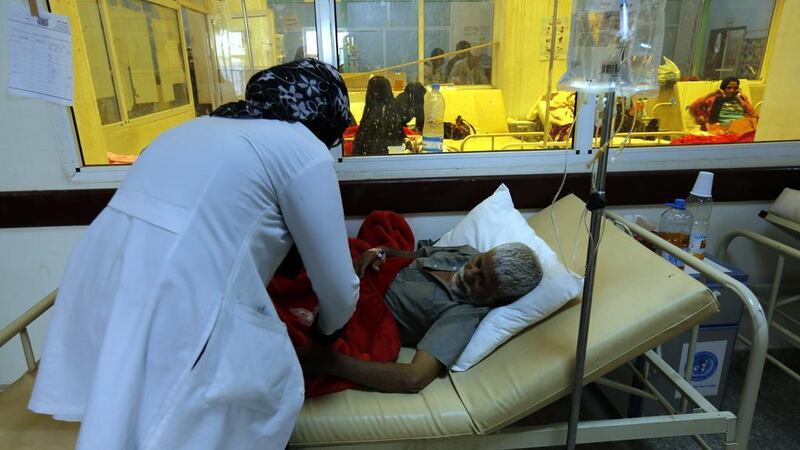Around 400,000 cases of suspected cholera and nearly 1,900 associated deaths were recorded in the last three months in war-torn Yemen, according to international humanitarian organisations.
“This is the world’s worst cholera outbreak in the midst of the world’s largest humanitarian crisis,” said Unicef the World Food Programme and World Health Organisation in a joint statement on Wednesday. “Vital health, water and sanitation facilities have been crippled by more than two years of hostilities, and created the ideal conditions for diseases to spread.”
Unicef executive director Anthony Lake, WFP executive director David Beasley and WHO director general Dr Tedros Adhanom Ghebreyesus said they had gone to the country “to see for ourselves the scale of this humanitarian crisis and to step up our combined efforts to help the people of Yemen”, where a devastating civil war and economic collapse has left millions on the brink of starvation.
They said that more than 60 per cent of the population do not know where their next meal will come from, and nearly two million children are acutely malnourished.
“Malnutrition makes them more susceptible to cholera; diseases create more malnutrition. A vicious combination,” said the statement.
The organisations also said that more than 30,000 health workers have not been paid their salaries in more than 10 months but were still reporting for duty.
They said they would do their best to support them with incentives and stipends, but urged the Yemeni authorities to pay them “because, without them, we fear that people who would otherwise have survived may die”.
The statement said that “there is hope”, as more than 99 per cent of people who are sick with suspected cholera and who have access to health services are surviving.
“However, the situation remains dire. Thousands are falling sick every day. Sustained efforts are required to stop the spread of disease,” said the statement. “Nearly 80 per cent of Yemen’s children need immediate humanitarian assistance.”
Cholera is also spreading in Somalia, Kenya, Congo, Nigeria, Tanzania and South Sudan, where the WHO is about to start a vaccination campaign with 500,000 doses of oral cholera vaccine.
Despite Yemen's huge outbreak, the biggest in any country in the space of a year, the WHO said it had put off a vaccination campaign there until 2018.
"A cholera vaccination campaign originally planned for July 2017 has been postponed at the request of the health authorities, in favour of a much larger preventive campaign next year targeting millions of Yemenis at risk of the disease," the organisation said.





